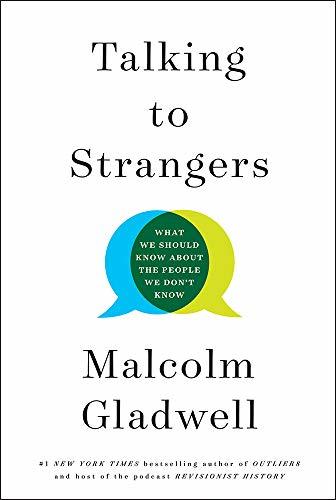Reflections Of My (Tech) Life

Firstly, an immense shoutout to Fran Hoey for offering me the incredible platform of Chester Devs. Seeing the overwhelming turnout was both heartwarming and slightly nerve-wracking - despite having done many talks, I still get butterflies. What added a more personal touch to the event was having some very special attendees in the audience.
For the first time, I managed to convince my wife to come and see me present. While we share countless moments and memories together, a significant portion of my life before our paths crossed remains relatively unknown to her. Through this talk, she got a sneak peek into some of those early days, which I perhaps wouldn’t have broached in our regular conversations.
Additionally, it was wonderful to have my sister in the crowd, someone who's considering venturing into the tech realm herself. As she stands on the precipice of her own tech journey, I hoped my insights could provide her with both motivation and cautionary tales. There's nothing like family support, and seeing them amidst the audience made the event all the more memorable.
In Too Deep

Every individual’s journey has unique turning points that leave an indelible mark on their professional trajectory. For me, one such moment early in my tech career was an ill-fated decision to accept a job post-apprenticeship, which was primarily driven by the allure of its paycheck rather than the compatibility with my skillset.
Finding myself in a role that I was ill-equipped for was daunting. It wasn't a reflection of my drive to learn but rather the consequence of an environment that didn’t nurture growth. The pinnacle of this period was the mortifying experience of confessing to business owners that I couldn't deliver on their expectations.
This poignant experience mirrors a narrative from Ryan Serhant's book, "Sell It Like Serhant". Serhant recounts a deeply humbling episode where he couldn't afford a tin of food, a situation that deeply affected him. Just as that financial low became Serhant's driving force to ensure he'd never be in such a position again, my professional low moulded my determination to never again be unprepared or unsupported in my job.
As a result, I became a "generalist" in tech. By seeking a broader base of knowledge and skills, I aimed to be versatile and adaptable. This shift in perspective not only bolstered my professional resilience but also enabled me to view tech projects from various angles.
Under Pressure

Throughout my journey as a software engineer, deadlines have been a constant companion. And, for the most part, they served as the pressure that brewed my finest moments. Most software engineering roles operate under the guiding hand of deadlines – be it for feature launches, product releases, or sprint cycles. There's an undeniable pulse to this industry, a heartbeat that keeps things moving and propelling forward.
However, there was a period in my career when this wasn't the case. In one of my roles, deadlines were noticeably absent. It's easy to fantasize about such a scenario: the freedom to work at one's own pace, the leisure to delve deep without the constraints of time. But, for someone like me, who had been conditioned to see deadlines as a motivational tool, this freedom quickly became a trap.
Without the urgency that deadlines brought, my motivation ebbed. It was an unexpected challenge, having to navigate the professional world without the familiar markers of time. I missed the adrenaline of the eleventh-hour rushes from my school and college days, those instances when a looming deadline sharpened my focus, enabling me to produce my best work under pressure.
Faced with this conundrum, I had to adapt. I began setting personal deadlines, constructing imaginary goalposts, and tapping into the lessons from past roles where deadlines drove the day. These self-imposed timelines brought back the familiar rhythm, the heartbeat I had missed.
Running Up That Hill

Joining my first consultancy was akin to taking a deep dive into the vast ocean of tech, headfirst. Right from the outset, I was catapulted into projects. This immediate immersion brought with it the exhilarating pressure I had come to relish in previous roles, making it both daunting and invigorating.
But what truly set this experience apart was the sheer volume of learning. The nature of consultancy demanded versatility and adaptability. With every project, I was introduced to a different approach, challenging me to evolve and reorient my methodologies from inception to delivery. It was a whirlwind of new workflows and techniques, a testament to the dynamic nature of the tech industry.
One of the most prominent areas of growth was my communication skills, an aspect I've always had a fluctuating relationship with. Interfacing with clients required a nuanced approach – a mix of technical acumen and interpersonal dexterity. Every interaction became an opportunity to refine this delicate balance.
My foray into cloud platforms, particularly AWS and Azure, was another significant milestone. These weren't mere tools; they were entire ecosystems, vast and intricate. Grappling with these technologies added another layer of depth to my professional repertoire.
And then there were the talks – voluntary endeavours where I'd share insights, dissect the intricacies of projects, and discuss both our triumphs and tribulations. Beyond being platforms for sharing knowledge, these sessions were instrumental in my personal growth. They honed my presentation skills, bolstered my confidence, and paved the way for constructive feedback.
All these elements combined accelerated my ascent within the company. Each challenge faced, every project undertaken, and every talk delivered, contributed to my upward trajectory in the consultancy world.
Go With The Flow

Clock marked a new chapter in my ever-evolving tech story. My motivation to join was fueled by curiosity. I had navigated the waters of consultancy before, but I was eager to discern how different captains piloted their ships. What could Clock offer that was unique, and what lessons from my past could I bring aboard this new vessel?
The transition was a revelation. Clock's dynamics and modus operandi offered a fresh perspective. While many aspects of their approach resonated as effective, there were areas where my experience hinted at potential enhancements. But a critical lesson I had imbibed over the years was that change, especially in well-oiled machinery, needs to be introduced with caution and tact. Every alteration in the process sends ripples across the team and can even extend to other departments. It's a delicate balance between innovation and stability.
Nine months into my tenure, and the journey has been enlightening. The roadmap ahead is dotted with opportunities and challenges. The vision is clear, but each step needs meticulous planning. Swift and abrupt changes can lead to what I term as "process whiplash," a rapid shift that, instead of propelling forward, can pull the team into a vortex of confusion and inefficiency.
At Clock, my prime focus remains on ensuring that each decision, each strategy, and each implementation is calculated, not just for immediate gains, but for long-term prosperity and harmony across the board.
You Get What You Give

Parallel to my structured roles, including my current tenure at Clock, has been my long-standing venture into freelancing. The initiation into freelancing was almost serendipitous for me. It wasn't a premeditated move; there wasn't a grand blueprint. Instead, it was my longstanding relationships with colleagues and partners from previous stints that paved the way. Before I knew it, the bridges I had built over the years transformed into avenues for freelance opportunities.
This unexpected shift opened up a new realm of possibilities. Financially, it was a boon – the rewards were tangible and fulfilling. But beyond the monetary aspect, freelancing introduced me to a diverse technological landscape. It was invigorating to dabble in tools and technologies outside the confines of my regular job. Each project was a new learning curve, a fresh challenge.
However, with great opportunities come inherent challenges. The dual demands of a full-time job coupled with side gigs became a tightrope walk. The risk of burnout loomed large. I could sense the initial symptoms – the passion that had once ignited my work started feeling like the flicker before the flame goes out. I knew I had to intervene.
The key was balance. I devised strategies to prevent burnout, to ensure that my profession, something I deeply cherished, remained joyous. It was essential that my work continued to invigorate, not drain me. These coping mechanisms ranged from delineating clear boundaries between work and leisure, allocating 'me-time', to immersing in activities outside the tech realm. The objective was singular – to preserve the fun in what I did, to ensure it never metamorphosed into a mundane job.
Go Your Own Way

Before diving into the specific questions, it's worth noting a humorous tidbit from the talk. In my mental rehearsal, my talk spanned a full hour and thirty minutes. But, as they say, when you're in the moment, things tend to take on a life of their own. I didn't have access to my notes (and honestly, who needs them? I'm narrating my own life story after all!), which resulted in a somewhat expedited version, clocking in at just an hour. A testament, perhaps, to the unpredictable nature of live presentations.
Routes into Tech
The age-old debate: is it better to take the university route or dive straight into an apprenticeship? This question remains as pertinent today as ever before. Both pathways offer unique experiences and advantages. Throughout my career, I've encountered professionals who've excelled, having chosen either route. It truly is a matter of individual preference and circumstance.
Battling Imposter Syndrome
The spectre of imposter syndrome is something that haunts many in our field. It was enlightening to delve into this topic during the Q&A. Sharing my battles with this intangible adversary, and hearing similar tales from others, served as a reminder that no one is truly alone in these feelings. Recognizing and confronting imposter syndrome is crucial to personal and professional growth.
Learning New Tech
Fielding a question about Terraform, an infrastructure tool I've had the pleasure of using, made me reflect on the broader challenge of continuously learning in tech. With a landscape that's in perpetual flux, staying updated and adapting to new technologies is paramount.
Engaging in these discussions reemphasized the vital role that community plays in the tech world. It's these moments of shared insights, mutual learning, and collective growth that make our industry so unique and rewarding. Different paths, same destination: a relentless pursuit of knowledge and innovation.
Life Is A Highway

Treading unfamiliar territories and facing challenges has been a cornerstone of my personal and professional growth. I often find myself aiming for the hardest difficulty in video games; not purely for the sake of challenge, but perhaps for that amplified dopamine hit that comes with overcoming those challenges. This, in a way, parallels my journey into the tech world. The hurdles were many, but the rewards of surmounting them were well worth the effort.
During my talk, an audience member's inquiry about book recommendations underscored the impact reading has had on my journey. Books such as:
Talking To Strangers by Malcolm Gladwell

Malcolm Gladwell’s "Talking To Strangers" delves deep into the human psyche, unravelling the complexities of our interactions, especially with those who come from a different walk of life than ours. In today's diverse tech landscape, the insights from this book prove invaluable. It teaches us to navigate the potential pitfalls of miscommunication, biases, and misunderstandings. By understanding and effectively managing cross-cultural and inter-departmental communications, we can foster healthier work relationships and cultivate more inclusive teams.
Never Split The Difference by Chriss Voss

Drawing from his experiences as a former international hostage negotiator for the FBI, Chris Voss provides a masterclass in negotiation tactics in "Never Split The Difference." While formulated for high-stakes situations, these techniques resonate deeply in the daily intricacies of our careers. Whether you're negotiating salaries, project timelines, or roles, the book emphasizes the power of a blend of assertiveness with empathy. Voss illustrates that achieving optimal results is possible without always defaulting to compromise.
The Unicorn Project by Gene Kim

"The Unicorn Project" is Gene Kim’s fictional narrative of an IT revolution, serving as a beacon of transformation for a stagnant tech department. The story is more than just fiction—it's a guide on how to nurture team dynamics, spur innovation, and sidestep common pitfalls in software engineering. Moreover, it showcases the unparalleled advantage of understanding and catering to your company's customers, advocating for a customer-centric approach in all tech endeavours.
The Phoneix Project by Gene Kim

Gene Kim's "The Phoenix Project" is the cornerstone for anyone looking to delve into IT project management. This enlightening read focuses on the world of continuous delivery in tech, emphasizing the importance of collaboration between development and operations teams. It underscores the essence of identifying and eliminating bottlenecks, ensuring smoother and more efficient project deliveries. The book is a testament to the importance of fostering a culture where collaboration is key and processes are streamlined for success.
The Pragmatic Programmer by Andrew Hunt and David Thomas (Bonus Entry)

I didn't mention this on the night, but this is also an amazing read. "The Pragmatic Programmer" is a beacon for best coding practices, technical techniques, and philosophical approaches that every coder should imbibe. But more than just a manual, it delves deep into the mindset a programmer ought to adopt. The teachings of this book advocate for cleaner, more efficient coding, effective problem diagnosis, and an agile approach to software development. It's not just about coding—it's about thinking, adapting, and innovating as a true programmer.
Each has been a guiding star, equipping me with invaluable insights. They've not only enhanced my technical acumen but have also played a pivotal role in refining my communication skills, especially given my introverted nature.
Beyond the tangible skills, reading has cultivated a mindset of curiosity and a drive for continuous learning. Coupled with the rich experiences from my talk at Chester Devs and interactions with the tech community, it's reinforced the idea that growth often lies at the intersection of challenges and learning. Whether it's diving deep into a subject, embracing last-minute pressures, or navigating the complexities of software consultancy, every experience is a step towards becoming a better version of oneself.

As the curtains drew on the event, I was reminded of the joys of stepping outside of Manchester, sharing stories, experiences, and learning from others. The tech community, with its vibrant mix of experiences and perspectives, continues to be a source of inspiration, and I eagerly anticipate what the future unfolds.
